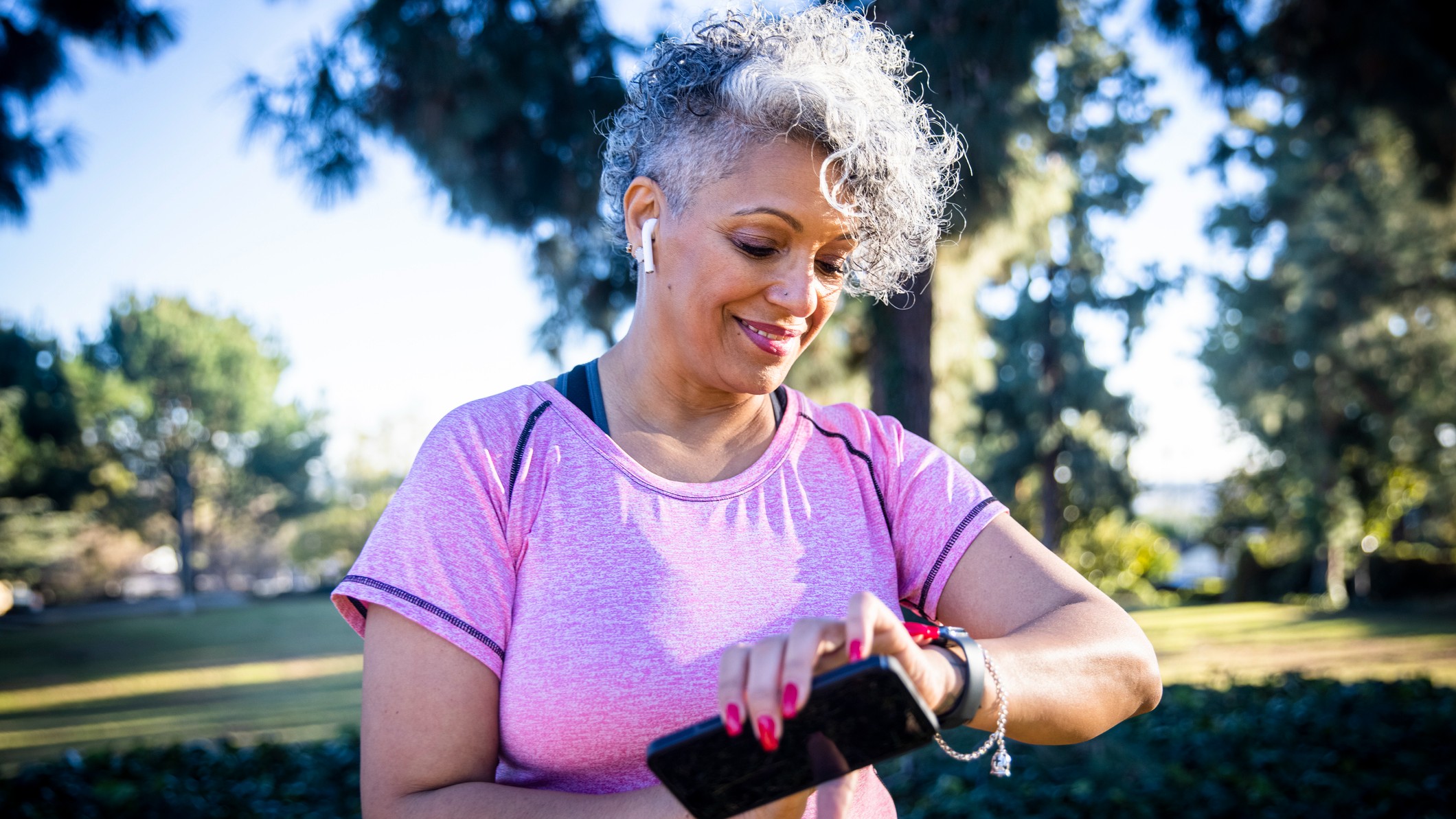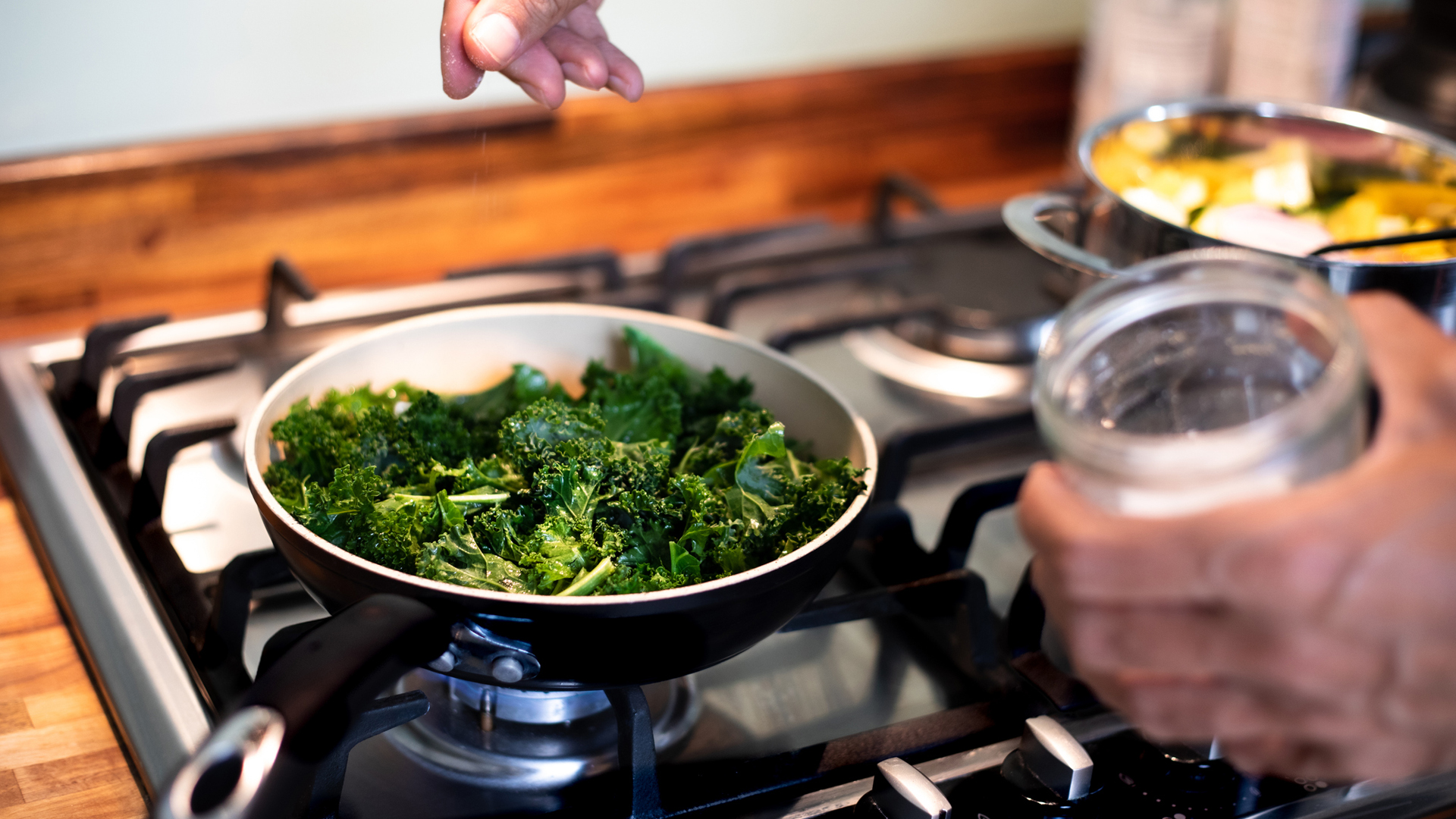
Knowing how to increase energy levels can be a game-changer as you get older, helping you to live life to the full. However, feeling constantly exhausted can stop us from fully enjoying our midlife years.
Fatigue can indicate different issues. It’s normal to feel tired from time to time, especially after a sleepless night, but when exhaustion persists for a long period and doesn’t get better with rest, it could be a sign of health problems and poor lifestyle choices.
A study published in the Journal of the American Geriatrics Society suggested that nearly a third of people over the age of 51 may struggle with low energy levels. This can be linked to a number of factors, including age-related hormonal issues, lack of exercise or unhealthy dietary habits.
The good news is there are many simple solutions to midlife exhaustion. Some, like developing a good sleep routine, may require more effort. Others may be straightforward, such as boosting your vitamin and mineral intake. And if you’re a woman, our guide to the best vitamins for women over 50 can give you a helping hand too.
Here are five common causes of low energy levels in your 50s and what you can do to address them.
Eat a healthy diet
The right diet can make a big difference to your energy levels. When you’re young, you might be able to get away with existing purely on takeaways. However, the aging process has a profound impact on metabolism. The older we are the harder it gets for our bodies to extract energy from food or absorb certain nutrients, according to Journal of Nutrition findings. That’s why nutrition should be the first thing to check.
Our bodies are complicated machines and need different nutrients to function properly. Therefore, there isn’t a single nutrient that can get rid of your fatigue once and for all. Still, eating the right types of food can help you get more energy.
Start your week with achievable workout ideas, health tips and wellbeing advice in your inbox.
One of the defining features of aging is increased systemic inflammation. At times, inflammation is necessary: it’s how the immune system recognizes and removes harmful elements from the body. When inflammation is out of control, the body struggles to function and repair itself. One of the main symptoms of this condition is persistent fatigue. Western diets, rich in processed foods, sugars and fats, can contribute to systemic inflammation, whereas diets rich in whole grains, fruit, vegetables, and omega-3 fatty acids have been shown to reverse it.

If you eat a healthy balanced diet, but still experience a lot of tiredness, certain vitamin and mineral deficiencies could be to blame. For example, B vitamins, vitamin C, iron and magnesium are mandatory to extract and utilize energy from food. When any of these micronutrients is in short supply, supplementation may be necessary.
Many people snack on sugary foods or drink coffee for a quick pick-me-up, but loading up on chocolate and caffeine can do more harm than good. A recent study in Neuroscience and Biobehavioral Reviews pointed out that ‘sugar rush’ is a myth and eating too many carbohydrates is actually linked to more fatigue and less alertness.
Caffeinated drinks can also linger in your system for hours, preventing you from getting a restful night. It’s also worth pointing out that in comparison with younger people, middle-aged adults were found – by a report published in the Journal of Psychopharmacology – to generally be more sensitive to the effects of a high dose of caffeine on sleep quantity and quality.
Exercise regularly
Regular physical activity can energize your body, no matter your age or fitness level. Exercise prevents muscle loss and boosts the production of dopamine, norepinephrine and serotonin – important neurotransmitters that play an important part in energy metabolism. Regular workouts have also been shown to reduce chronic inflammation in the body.
Older adults tend to be less active and less confident in their fitness abilities than younger people. However, anyone can reap the benefits of regular physical activity. Keeping active is one of the best things you can do for your health in your 50s and beyond. Keep active and injury free with these top tips.
Take care of your sleep
Research in Neuropsychology Review indicates that sleep problems are getting more common as we age. It has been estimated that more than a half of older adults complain about difficulty initiating or maintaining sleep. Not getting enough quality rest at night is a major factor behind feeling fatigued. Fortunately, a few tweaks to your lifestyle and bedtime routine could significantly improve your sleep quality.

- Increase your levels of physical activity
- Turn off electronic devices before bedtime. Screens emit a lot of “blue light” which can disrupt the sleep-wake cycle
- Develop a sleeping routine. Try to go to bed and wake at the same time as often as possible.
- Keep your bedroom cool, dark and quiet.
Cut back on alcohol
The Journals of Gerontology reported that alcohol is one of the most abused substances among middle-aged and older adults.
It’s well known that abusing alcohol can be harmful to many aspects of our health, including the heart, liver, brain and nervous system. It also can have a profound impact on our sleep patterns. While it might relax your muscles and make you pleasantly drowsy, alcohol actually makes it harder to get good shut-eye. It prevents your body from entering the deep sleep stage, badly affecting your daytime energy levels.
Check your hormones
Estrogen
Women who undergo hormonal changes often experience low energy levels. Menopausal transition is caused by decreasing levels of estrogen in the body. When this hormone is low, the brain function is affected, leading to bouts of insomnia, sleep disorders and fatigue. There are a few ways to balance the hormones during menopause. Many women turn to estrogen replacement therapy to alleviate unpleasant symptoms. Others prefer to use medicinal plants and specific molecules with estrogenic effects, such as milk thistle, red clover, salvia officinalis, soy or black cohosh. Some of these can be found in the best menopause supplements.
Testosterone
When men reach midlife their testosterone levels begin to gradually decline. A study in Sleep Medicine found that low levels of testosterone can cause mood swings, loss of libido and muscle weakness, but they may also contribute to sleep problems and fatigue. However, changes to diet can help with this. Healthy nutrition is an important factor in maintaining sufficient levels of testosterone. A study in Prostaglandins, Leukotrienes and Essential Fatty Acids (PLEFA) also showed that supplementation with fish oil may contribute to increased testosterone levels in overweight and obese men. Check out our guide to the best fish oil supplements.
Thyroid hormones
Thyroid hormones control – to a large extent – the energy metabolism and tissue growth in our bodies. As such, they have a massive impact on our energy levels. The thyroid gland is sensitive to the aging process and may cause many problems among the over 60s age group. For example, exhaustion is a key symptom of hyperthyroidism, a condition caused by the excessive production of the hormone thyroxine. If your symptoms also include thinning hair, dry skin, feeling cold, constipation and weight gain, please consult your doctor. You may need medications to help your thyroid work properly.

Anna Gora is a Health Writer for Future Plc, working across Coach, Fit&Well, LiveScience, T3, TechRadar and Tom's Guide. She is a certified personal trainer, nutritionist and health coach with nearly 10 years of professional experience. Anna holds a BSc degree in Nutrition from the Warsaw University of Life Sciences, a Master’s degree in Nutrition, Physical Activity & Public Health from the University of Bristol, as well as various health coaching certificates. She is passionate about empowering people to live a healthy lifestyle and promoting the benefits of a plant-based diet.
